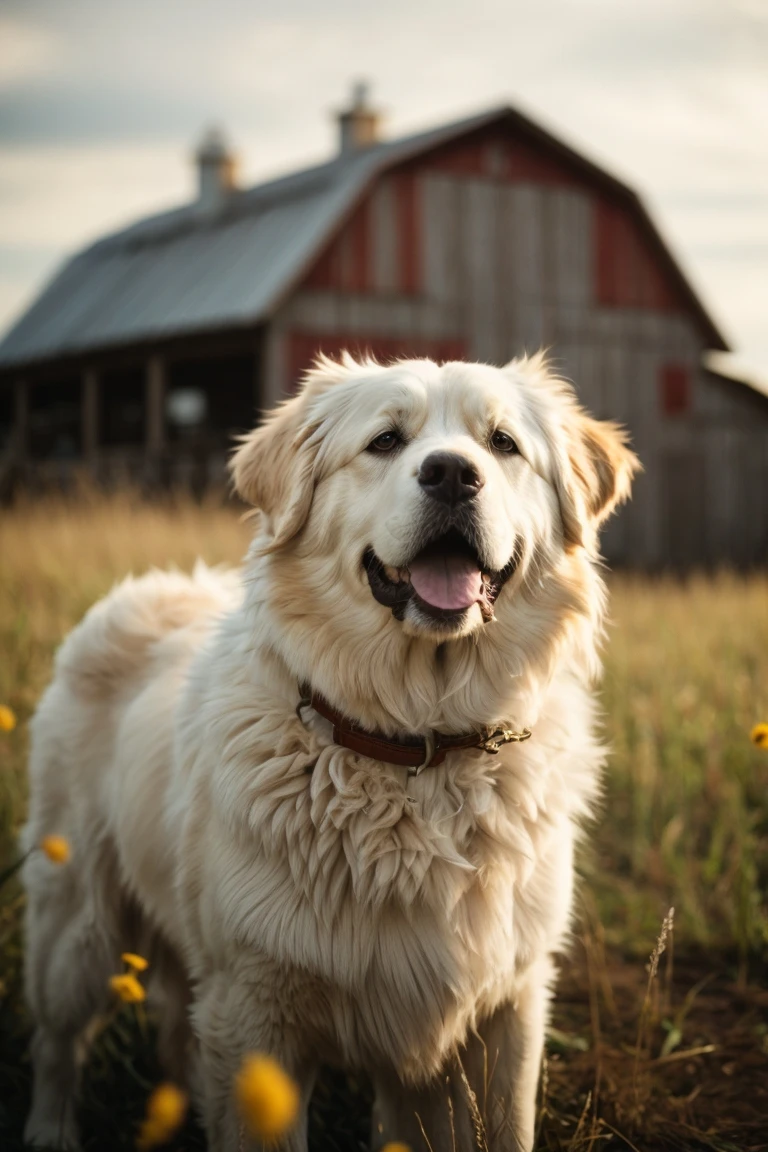How to Manage Great Pyrenees Barking: Tips and Tricks for a Quieter Home

So, you have a Great Pyrenees, and perhaps you're wondering, "Will he ever stop barking?" The good news is yes, with time, patience, and the right training, you can teach your Great Pyrenees to be less vocal. In this comprehensive guide, we will delve into the reasons behind Great Pyrenees barking and provide you with effective training techniques to curb excessive barking.
Understanding the Reasons Behind Great Pyrenees Barking
It's essential to recognize that Great Pyrenees barking is not just random noise; it's their way of communicating with us. To effectively address the issue, we must understand why they bark. Renowned dog trainer Turid Rugaas identified six primary reasons for dog barking, and we've added a seventh specific to Great Pyrenees:
- Excitement: When your Pyrenees is thrilled about something, like your return home or a walk, they may bark joyfully.
- Warning: A short, sharp bark used to alert the pack or family to potential danger. Ignoring this bark may lead to more persistent and louder barking.
- Fear: High-pitched sounds, similar to excitement barking, but accompanied by restless and anxious body language.
- Guard Barking: Often misunderstood as aggression, this type of barking occurs when the dog feels the need to protect something, like food, or perceives a threat.
- Frustration: Short, repetitive barking from highly stressed dogs, often due to neglect or loneliness.
- Attention-Seeking Barking: When your dog has associated barking with getting attention, they may bark and then look for a reward, such as verbal praise, petting, or treats.
- Intimidation Barking: Great Pyrenees, especially livestock guardian breeds, were bred to scare away predators with their size and formidable barks. They may bark at anything they find uncertain or threatening.
How to 'Hear' What Your Great Pyrenees is Telling You
To address your Great Pyrenees' barking, you must first understand the underlying cause. Punishing or scolding your dog is not an effective way to handle the issue; instead, focus on these steps:
Step 1: Figure Out Your Dog's Favorite Reward
Positive training is the key to stopping excessive barking. Identify what your dog loves most as a reward, whether it's a specific treat, a toy, praise, belly rubs, or even a game of fetch. Use this reward during training sessions.
Step 2: Teach Your Dog Obedience Commands
Teach your Pyrenees basic commands like "look at me," "sit," and "down" using positive methods. Your goal is to train them to be calm and attentive when they feel like barking.
Step 3: Identify Why Your Dog Is Barking and Acknowledge It
When your dog starts barking, go to them and determine the cause. Whether it's something in the yard or outside of it, show them that you understand their concern.
Step 4: Give Your Dog Something to Do Other Than Bark
Redirect your dog's attention away from the trigger of their barking with a positive training session. Use commands like "look at me" or offer a reward. If needed, gently pull them away from the barking source.
Step 5: Add in Some Lingo
Use consistent phrases like "thank you," "that's enough," or "leave it" to signal to your dog that their barking is not needed once they become more responsive to training sessions.
Step 6: Practice Training with the Trigger
Gradually introduce the trigger that prompts your dog to bark, such as someone knocking on the door. Work on sessions to desensitize your dog to the trigger, rewarding them for staying calm.
Remember that this process may take time and patience. Great Pyrenees dogs mature slowly, so be consistent and persistent in your efforts.
In conclusion, addressing your Great Pyrenees' excessive barking requires a positive and patient approach. By understanding the reasons behind their barking and using these training techniques, you can help your beloved companion become a quieter and more well-behaved member of your family.